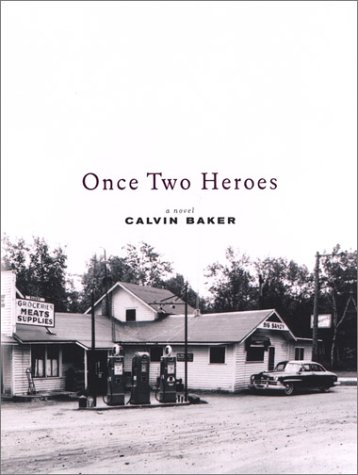Once Two Heros
It would be too easy to say Once Two Heroes is a novel about bigotry. Calvin Baker wrestles with many themes: the nature of man, the dangers of bloodlust and blind fealty, the varied perception of good and evil, and the difficulties of returning soldiers to civilization.
Mather Rose is an African-American raised in Paris. Lewis Hampton is a white man from a small Mississippi town. In Europe during WWII, both men fight an explicit evil. Upon return to the U.S., Mather petitions Washington D.C. for the Medal of Honor, the one award promised to him but not yet bestowed. Passing through Mississippi after having been denied, Mather is confronted by Lewis’ bigoted brother. Mather kills him in a sudden violent act that may or may not be self-defense. Upon hearing the news, Lewis – who can read the medals upon Mather’s chest – makes a horrific decision. This act is justified, so Lewis tells himself, because ‘a Negro in uniform killing a Southerner is an act of war.’ To be a man, Lewis must ‘set the world to rights,’ defend his ‘country,’ and find his way ‘back into the fellowship of man.’
Baker is an intense writer. The narrative is marred by self-conscious literary prose, but this fault disappears in the action scenes, which are vivid and powerful. Once Two Heroes depicts the chilling way in which any ordinary man can rationalize brutality.










